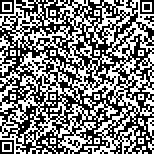基于虚拟现实技术的康复训练系统设计与效果评估研究
2025,33(2):317-324
摘要:虚拟现实技术越来越多的应用到康复训练效果评估中。研究利用粒子群优化算法改进支持向量机,进而对运动想象脑电信号进行分析。并在此基础上设计一种基于虚拟现实技术的康复训练系统,并提出基于改进长短期记忆网络的康复训练效果评估模型。实验结果表明,在对2名受试者的运动想象训练实验中,所提改进支持向量机分类器对于受试者的分类准确率最高,为95.54%。相较于数据挖掘模型、LSTM和自适应神经模糊模型,所提出的康复训练效果评估模型对于15名患者的评估准确率均在93%以上,最高可达到96.02%,对上肢功能障碍的评估精确率为95.87%,高于另外三种模型。在下肢功能障碍评估中的表现仍然较好,评估精确率为96.74%,比自适应神经模糊模型高10.35%,比基于关联规则的数据挖掘模型高16.26%,比传统长短期记忆网络高23.46%。实验结果证实了所提系统和效果评估模型的性能,有利于提高康复训练过程的智能化水平,改善患者的康复训练效果。
关键词:虚拟现实;康复训练;脑电信号;效果评估;循环神经网络
Research on the design and effect evaluation of rehabilitation training system based on virtual reality technology
Abstract:Virtual reality technology is increasingly being applied in the evaluation of rehabilitation training effectiveness. Research on using particle swarm optimization algorithm to improve support vector machines and analyze motor imagery EEG signals. And based on this, design a rehabilitation training system based on virtual reality technology, and propose a rehabilitation training effectiveness evaluation model based on an improved long short-term memory network. The experimental results showed that in the exercise imagination training experiment on two subjects, the proposed improved support vector machine classifier had the highest classification accuracy for the subjects, at 95.54%. Compared with data mining models, LSTM, and adaptive neuro fuzzy models, the proposed rehabilitation training effectiveness evaluation model has an accuracy rate of over 93% for 15 patients, with the highest reaching 96.02%. The accuracy rate for evaluating upper limb dysfunction is 95.87%, which is higher than the other three models. The performance in the assessment of lower limb dysfunction is still good, with an accuracy rate of 96.74%, which is 10.35% higher than the adaptive neuro fuzzy model, 16.26% higher than the association rule-based data mining model, and 23.46% higher than the traditional long short-term memory network. The experimental results confirm the performance of the proposed system and effectiveness evaluation model, which is beneficial for improving the intelligence level of rehabilitation training process and improving the rehabilitation training effect of patients.
Key words:Virtual reality; Rehabilitation training; EEG signals; Effect evaluation; Recurrent neural network
收稿日期:2024-07-23
基金项目:辽宁省科技计划联合计划(应用基础研究项目):(2023JH2/101700068);
